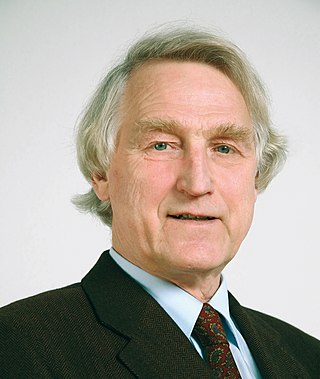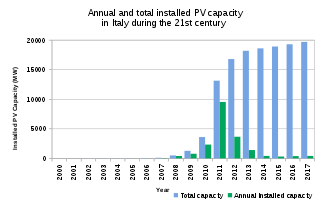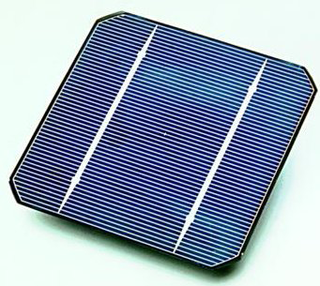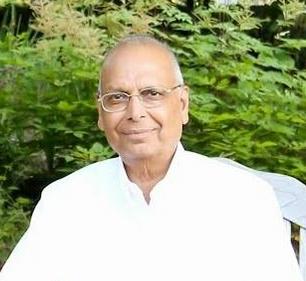Research activities
Silvestrini was born in 1947 in Aosta. From 1977 to 1982, he worked for the University of Palermo in the field of simulation models for solar technologies and energy efficiency in buildings and was visiting researcher at the Lawrence Berkeley Laboratory. Since 1983, he continued his activity at the National Research Council Institute, focused on Energy and Buildings (Ieren). During this period, he was involved in the Task 11 of the International Energy Agency "Passive and hybrid solar commercial buildings".
Since 1988, Silvestrini enlarged his activities in the area of environmental and energy strategies, with studies at urban, regional and national level. A particular attention was given on the issue of global warming, with the preparation of specific studies for the Ministry of Environment. From 2004 to 2006, he was professor at the Politecnico di Milano and has launched the post graduate Master "Ridef – Energy for Kyoto" on energy efficiency and renewable energies that has continued to follow as responsible until now.
Silvestrini is the author of more than 100 scientific papers and co-authored 5 books (“Solar Architecture”, 1984, textbook at Polytechnic of Milan; “The future of sun”, 1990, “La corsa della green economy”, 2010, "2 C, Innovazioni radicali per vincere la sfida del clima e trasformare l'economia", Ed. Ambiente 2016; "Le trappole del clima - E come evitarle". Ed. Ambiente 2020) and is member of the advisory board of different associations and journals in the field of energy.
Institutional activities
He was President of “Bologna-Energia 2010”, the Energy agency of the City of Bologna and acted as Advisor of the Mayor of Palermo in the area of Energy and Environment. From 1997 to 2000 he was advisor of the Minister of Environment and from 2000 to 2002 he was appointed as General Director at the Ministry of the Environment. During this period he has been involved in the policies connected with the Kyoto Protocol, particularly on energy efficiency and in the field of renewable energies.
In this area, Silvestrini coordinated the Italian “10.000 solar roofs” program and launched the "Car Sharing" program in Italy and the "Car Free Sundays" From 2007 to 2008 he was energy advisor of the Minister of Economic Development and was involved in the definitions of new laws on energy efficiency in buildings. From 2006 to 2009 he was President of the Italian Ecolabel section; He has provided information and consulting services to a large variety of clients including Local Municipalities, Regions, Ministries, European Commission, IEA
The Wuppertal Institute for Climate, Environment and Energy is a German research institution for sustainability research, focusing on impacts and practical application. It explores and develops models, strategies, and instruments to support sustainable development at local, national, and international levels. Research at the Wuppertal Institute focuses on ecology and its relation to economy and society. Special emphasis is put on analyzing and supporting technological and social innovations that decouple the prosperity of economic growth from the use of natural resources. The organization's activities focus on developing transformation processes aimed at shaping a climate-friendly and resource-efficient world.

A Zero-Energy Building (ZEB), also known as a Net Zero-Energy (NZE) building, is a building with net zero energy consumption, meaning the total amount of energy used by the building on an annual basis is equal to the amount of renewable energy created on the site or in other definitions by renewable energy sources offsite, using technology such as heat pumps, high efficiency windows and insulation, and solar panels.
The Institute for Energy and Transport (IET) is one of the seven scientific Institutes of the Joint Research Centre (JRC), a Directorate General of the European Commission (EC). It is based both in Petten, the Netherlands and Ispra, Italy, and has a multidisciplinary team of around 300 academic, technical, and support staff.

The energy policy of the European Union focuses on energy security, sustainability, and integrating the energy markets of member states. An increasingly important part of it is climate policy. A key energy policy adopted in 2009 is the 20/20/20 objectives, binding for all EU Member States. The target involved increasing the share of renewable energy in its final energy use to 20%, reduce greenhouse gases by 20% and increase energy efficiency by 20%. After this target was met, new targets for 2030 were set at a 55% reduction of greenhouse gas emissions by 2030 as part of the European Green Deal. After the Russian invasion of Ukraine, the EU's energy policy turned more towards energy security in their REPowerEU policy package, which boosts both renewable deployment and fossil fuel infrastructure for alternative suppliers.
The Office of Energy Efficiency and Renewable Energy (EERE) is an office within the United States Department of Energy. Formed from other energy agencies after the 1973 energy crisis, EERE is led by the Assistant Secretary of Energy Efficiency and Renewable Energy, who is appointed by the president of the United States and confirmed by the U.S. Senate. Alejandro Moreno currently leads the office as the Acting Assistant Secretary.
Green jobs are, according to the United Nations Environment Program, "work in agricultural, manufacturing, research and development (R&D), administrative, and service activities that contribute(s) substantially to preserving or restoring environmental quality. Specifically, but not exclusively, this includes jobs that help to protect ecosystems and biodiversity; reduce energy, materials, and water consumption through high efficiency strategies; de-carbonize the economy; and minimize or altogether avoid generation of all forms of waste and pollution." The environmental sector has the dual benefit of mitigating environmental challenges as well as helping economic growth.

Joachim Luther received his PhD in experimental physics at the Leibniz University Hannover in 1970.

The Cyprus Institute is a non-profit research and educational institution with a strong scientific and technological orientation, addressing issues of regional interest but of global significance, with an emphasis on cross-disciplinary research and international collaborations. It was formally established in 2005, and started operations in 2007.

The Lebanese Center for Energy Conservation (LCEC) is the national energy agency for Lebanon. It is a governmental organization within the Lebanese Ministry of Energy and Water (MEW). LCEC is the technical arm of the Ministry in all subjects related to energy efficiency, renewable energy, and green buildings. LCEC provides energy efficiency and renewable energy programs to the public and private sectors in Lebanon.
WREN is a major non-profit organization registered in the United Kingdom with charitable status and affiliated to UNESCO, the Deputy Director General of which is its honorary President. It has a Governing Council, an Executive Committee and a Director General. It maintains links with many United Nations, governmental and non-governmental organisations.

Vincenzo Balzani is an Italian chemist, now emeritus professor at the University of Bologna.

Solar power is an important contributor to electricity generation in Italy, accounting for 8% of the total in 2017. As of 2022, the country has a total installed capacity of 22.56 GW. In 2019, Italy set a national goal of reaching 50 GW by 2030.

Renewable energy has developed rapidly in Italy over the past decade and provided the country a means of diversifying from its historical dependency on imported fuels. Solar power accounted for around 8% of the total electric production in the country in 2014, making Italy the country with the highest contribution from solar energy in the world that year. Rapid growth in the deployment of solar, wind and bio energy in recent years lead to Italy producing over 40% of its electricity from renewable sources in 2014.
Gian Nicola Babini was an Italian scientist who specialised in the field of ceramics.

Photovoltaic and renewable energy engineering is an area of research, development, and demonstration in Australia. Two Australian Research Council Centres play a role.
Legambiente is an Italian environmentalist association with roots in the anti-nuclear movement that developed in Italy and throughout the Western world in the second half of the 1970s. Founded in 1980 as part of the ARCI, it later became a stand-alone organisation. Originally known as Lega per l'ambiente, it changed name during the IV National Congress held in Parma in 1992. The mission of the association is to make the environmental culture the centre of a new kind of development and diffused well-being. Important values for the association are the improvement of environmental quality, the fight against all forms of pollution, a wise use of natural resources, the construction of a more balanced relationship between human beings and the nature. It is considered the most widespread environmental organisation in Italy, as it is composed by a national headquarter in Rome, 20 regional branches, about 1,000 local groups and more than 115,000 members.
Brian Norton is a solar energy applications researcher and technologist. As president of Dublin Institute of Technology (DIT) from 2003 to 2018, he was an advocate for diversity of higher education in Ireland. He has also been associated with the relocation of DIT from a multiplicity of scattered buildings to a single city centre campus in the Grangegorman neighbourhood of Dublin and the creation of the Technological University Dublin, Ireland's first Technological University.

Adil Lari is an Austrian architect specializing in sustainable architecture, ecological engineering, renewable energies and energy policy consulting. He was one of the first persons in Europe in the nineties who engaged in this field. Earning both national and international acclaim through his continuous activities, he has been invited as an expert and lecturer to numerous workshops and conferences. In 1991 he won the Austrian National Award for Domestic architecture for his construction project Solar Housing Plabutsch.
National Action Plan for Climate Change (NAPCC) is a Government of India's programme launched in 2008 to mitigate and adapt to the adverse impact of climate change. The action plan is designed and published under the guidance of Prime Minister’s Council on Climate Change (PMCCC). The 8 sub-missions aimed at fulfilling India's developmental objectives with focus on reducing emission intensity of its economy. The plan will rely on the support from the developed countries with the prime focus of keeping its carbon emissions below the developed economies at any point of time. The 8 missions under NAPCC are as follows:

N K Bansal was a former Head and Senior Professor of Centre for Energy Studies at IIT-Delhi. He was also the Vice-Chancellor of a technical university SMVDU in Jammu and Kashmir. Bansal was the recipient of the fellowship of the German Academic Exchange Service as well as holder of Alexander von Humboldt Fellowship from Germany. N.K Bansal's work on Climatic Zones and Passive Building Design is used extensively by researchers and practitioners.










